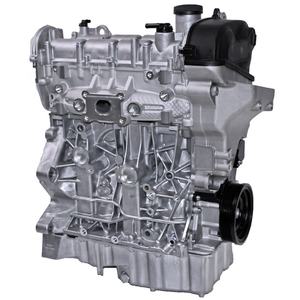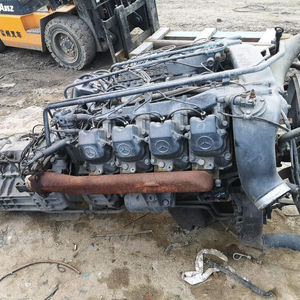A Comprehensive Comparison of Various Kinds Of Import Engines and Their Applications in Various Vehicles
As the vehicle market proceeds to advance, the selection of engines for lorries becomes progressively diverse, each offering distinct benefits and applications. From the effectiveness of turbocharged engines to the ecological friendliness of electric powertrains, the spectrum of import engines available in today's market caters to a wide array of driving preferences and demands. Whether it's the torque of a diesel motor or the unique style of a rotary engine, comprehending the nuances of each type and how they straighten with details car demands can substantially affect performance, gas economic situation, and total driving experience. By checking out the ins and outs of these import engines and their applications in various vehicles, a more clear photo emerges of the intricate equilibrium in between innovation, performance, and sustainability in the contemporary automobile landscape.
Turbocharged Engines
Turbocharged engines, understood for their capability to boost power output successfully, have actually come to be progressively prevalent in contemporary vehicle styles. By utilizing exhaust gases to drive a wind turbine that presses incoming air into the engine, turbochargers effectively boost the amount of air and fuel combination that can be combusted, causing improved performance without dramatically enhancing engine dimension. This modern technology enables suppliers to downsize engines, causing far better fuel effectiveness while keeping power degrees comparable to bigger, naturally aspirated engines.

Hybrid Engines
With the developments in engine technology helping with enhanced performance and performance, the vehicle market has seen a rise in the integration of crossbreed engines as a lasting option for power shipment. Hybrid engines combine the advantages of both interior combustion engines and electrical motors to offer improved fuel efficiency and lowered exhausts. By effortlessly switching in between both power sources or utilizing them simultaneously, hybrid engines supply convenience in different driving conditions.

Additionally, hybrid modern technology is not limited to a specific automobile type, with applications varying from compact sedans to bigger SUVs and even high-performance sporting activities automobiles. As ecological concerns and fuel performance policies end up being progressively prominent, hybrid engines stand for a substantial action in the direction of sustainable transport solutions.
Electric Engines
Electric engines have actually revolutionized the auto sector with their environmentally-friendly and efficient power shipment systems. import engines. These engines operate by transforming electrical power right into mechanical energy, using a smooth and quiet driving experience. Unlike standard burning engines, electrical engines produce absolutely no tailpipe discharges, reducing the general carbon impact of vehicles and helping combat air contamination
Among the crucial advantages of electrical engines is their high energy effectiveness, generally converting over 80% of the electrical power into propulsion. This efficiency translates right into price financial savings for consumers via lowered fuel costs. Additionally, electric engines require less maintenance compared to internal burning engines, as they have less relocating parts that can use out over time.
Electric engines are typically used in electric cars (EVs) and crossbreed electrical lorries (HEVs) EVs depend exclusively on electrical engines for propulsion, attracting power from rechargeable batteries. On the various other hand, HEVs incorporate electrical engines with conventional internal burning engines to optimize gas efficiency and decrease exhausts. The versatility and sustainability of electrical engines make them an appealing service for the future of transport.
Diesel Engines
Diesel engines are renowned for their exceptional navigate here fuel performance and robust performance in a selection of auto applications. These engines run by compressing air in the cyndrical tubes, which causes heats that spark the infused gasoline without the demand for ignition system. This combustion approach gives diesel motor with greater torque results compared to gasoline engines, making them suitable for heavy-duty cars like trucks, buses, and building and construction tools.
One of the essential advantages of diesel engines is their superior fuel efficiency, as they can travel further on a gallon of gas contrasted to gasoline engines. This effectiveness is especially useful for long-haul transportation and commercial fleets, where decreasing fuel costs is a significant factor. Furthermore, diesel engines are recognized for their durability and long life, requiring much less upkeep over their life expectancy compared to fuel engines.
In the last few years, improvements in diesel engine technology have actually likewise concentrated on reducing exhausts to satisfy strict ecological policies. Modern diesel engines are outfitted with sophisticated emissions regulate systems, such as diesel particle filters and selective catalytic decrease, which help decrease pollutants released right into the atmosphere - import engines. These growths have made diesel motors cleaner and a lot more eco-friendly while keeping their performance and this page performance characteristics
Rotating Engines
Prominent for their distinct style and performance qualities, rotating engines offer an unique option to traditional combustion engine innovations like diesel engines. These engines, additionally recognized as Wankel engines, operate on a different concept contrasted to conventional piston engines.

Conclusion
To conclude, the contrast of different kinds of import engines highlights the variety of choices offered for various automobiles. Turbocharged engines provide increased power and performance, crossbreed engines combine traditional and electrical power resources for boosted gas economic climate, electric engines give a clean and lasting option, diesel engines are recognized for their longevity and torque, and rotary engines offer a distinct design with possibility for high performance. Each engine type has its very own strengths and applications in the auto market.
In addition, hybrid engines contribute to a quieter driving experience and frequently give a smoother acceleration contrasted to conventional interior burning engines.
Distinguished for their distinct layout and performance features, rotary engines provide a distinctive option to typical combustion engine modern technologies like diesel engines. These engines, also understood as Wankel engines, run on a different principle contrasted to conventional piston engines. In spite of these constraints, rotary engines continue to bring in enthusiasts and makers looking for a different engine modern technology with distinctive benefits.
Turbocharged engines offer boosted power and performance, crossbreed engines combine electrical and traditional website here power sources for enhanced gas economy, electric engines supply a tidy and lasting alternative, diesel engines are known for their toughness and torque, and rotating engines offer a distinct style with capacity for high performance.